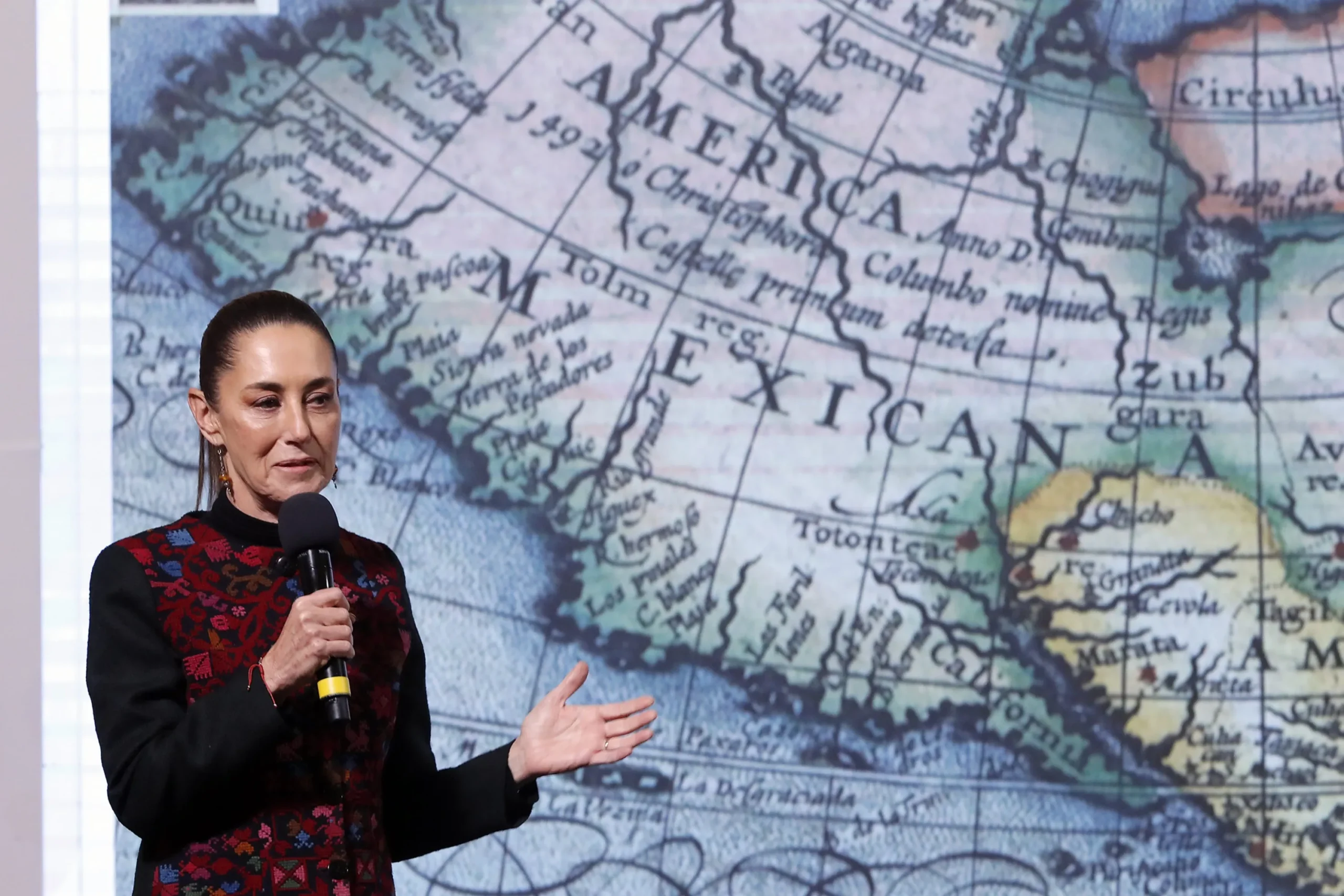Claudia Sheinbaum Sparks Controversy: Should the U.S. Be Renamed “Mexican America”?
In a bold and unexpected move that has set the political world abuzz, Mexican President Claudia Sheinbaum has proposed a provocative geopolitical reimagining that challenges long-standing historical narratives. Her suggestion to rename the United States as “Mexican America” has ignited a firestorm of debate, drawing international attention and polarizing political commentary.
The controversy stems from a complex backdrop of historical tensions and contemporary political discourse. Sheinbaum’s proposal explicitly references historical contexts dating back to 1607, challenging the traditional understanding of territorial boundaries and national identities. Her statement comes as a direct response to recent comments by former U.S. President Donald Trump, whom she characterized as “misinformed” about historical and geopolitical realities.
Key Points of the Controversy
- Historical Context: Referencing territorial claims from early colonial periods
- Political Strategy: Challenging traditional narratives of American exceptionalism
- Diplomatic Implications: Potential reshaping of U.S.-Mexico relations
Political analysts have interpreted Sheinbaum’s remarks as more than just a provocative statement. They view it as a calculated move to:
- Counter Trump’s inflammatory rhetoric
- Assert Mexico’s geopolitical significance
- Challenge existing power dynamics
The proposal has predictably generated mixed reactions across social and political spectrums. Republican lawmakers have not remained silent, with notable figures like Georgia Representative Marjorie Taylor Greene responding with equally provocative counter-proposals. Greene has suggested renaming the Gulf of Mexico to the “Gulf of America,” signaling a broader trend of geographical name contestations.
Texas Republican Representative Brandon Gill has taken the controversy further, referencing a concept of a “new Manifest Destiny” that would potentially expand territorial understanding. This suggests the debate extends beyond mere nomenclature and touches deeper questions of national identity and historical interpretation.
Social Media and Public Reaction
Social media platforms have become battlegrounds for this linguistic and political debate. Reactions range from:
- Outright support for Sheinbaum’s bold statement
- Criticism viewing the proposal as inflammatory
- Nuanced discussions about historical narratives
- Memes and satirical commentary
The controversy highlights several critical contemporary issues:
- The evolving nature of national identities
- Demographic shifts in North American populations
- Growing influence of Latino voices in political discourse
- Reimagining historical narratives
Political communication experts suggest that Sheinbaum’s statement is strategically designed to:
- Provoke dialogue
- Challenge existing power structures
- Highlight historical complexities
While the proposal might seem radical, it represents a broader trend of questioning established historical narratives. By suggesting a rename that acknowledges Mexico’s historical presence and influence, Sheinbaum is effectively challenging the traditional American narrative of territorial acquisition and expansion.
“Historical narratives are never static; they are constantly being reinterpreted and negotiated,” says Dr. Elena Rodriguez, a prominent geopolitical historian.
The controversy also underscores the complex relationship between the United States and Mexico. It goes beyond a simple name change, touching on deeper issues of cultural identity, historical trauma, and ongoing geopolitical dynamics.
Potential Implications
- Diplomatic tensions
- Renewed discussions about territorial history
- Increased dialogue about cultural identity
- Potential shifts in bilateral relations
As the debate continues, one thing remains clear: Claudia Sheinbaum has successfully captured global attention and sparked a conversation that challenges long-held assumptions about national boundaries and historical narratives.
Conclusion
While the likelihood of the United States being renamed “Mexican America” remains virtually nonexistent, the proposal serves its primary purpose: generating critical dialogue about historical understanding, national identity, and the complex tapestry of North American geopolitics.
The conversation continues…






Leave a Comment